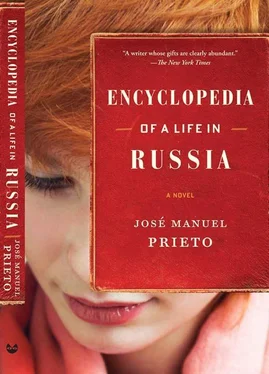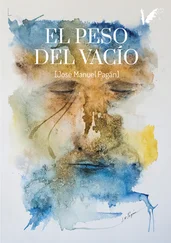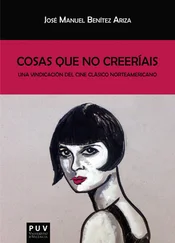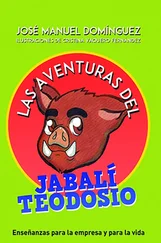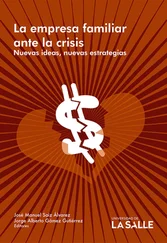In fact, for P.O.A., it was enough that she could dance, whether or not she did it well. The important thing was to introduce a meaning into her moves, reproduce the process that had allowed me, during long dance sessions, to break down my pas into elemental gestures that might even be reduced to notations. One of these, in which I raised my arms to the height of my head and agitated them rhythmically as if saying good-bye, was indeed a good-bye to my former life full of worries, absurdly responsible, my sleepless nights. An innovative lighting technology of those years — a phantasmagorical strobe — immobilized the shuttlecock of my dancing into very crisp snapshots that emerged from the darkness one after another for as long as the blink of magnesium lasted. Beneath this light, interrogated by it, immobile in my own perception but actually in movement, I wondered one night: why do we dance? How to find a satisfactory explanation for this irrational fact? Was the world not full of inexplicable phenomena, then, if I couldn’t find an answer to the question of something as trivial and widespread as dance? Incapable of sidestepping these lacunae in my knowledge, I found myself thinking of prehistoric shadows, totems, roaring lions, ritual cavorting around the bonfires. We kept on moving there, on that same dance floor, essentially as we did five or ten thousand years earlier, voguing freely across the savannah, a thing as elemental as the release of your breath. I was never again the same after that dance revelation.
Curiously, the only songs that aroused my enthusiasm were the hits of the moment. Very silly songs — Italian, mainly, in the mid-eighties — which, once the season was over, were cast off without an afterthought. The music didn’t suffice unto itself, it was we who had to infuse it with life, connect it to our up-to-date nervous centers, surround it with the truths of the present day, season it with our acute awareness of our own youth and strength. We would stamp our feet in rage if some disc jockey, well intentioned but stupid, tried to stir us with a potpourri of old favorites; the revolutions of the dark mass of dancers would slow, as if encumbered by an invisible weight, a generalized yawning would ensue, people stumbling into each other, hisses. When we’d gone very limp, almost to the point of death, the DJ would inject us with a strong dose of some group that was very bad but very new, and we would hurl ourselves to the center of the floor once again and spend hours in a zone of time that could only be accessed through music and dancing: when their effect wore off, the grayness of your gray life awaited you.
MORRIS, WILLIAM. When, after nightfall, I sat on the terrace of the DACHA we’d rented in Crimea and devoted several hours to making some notes for this work, I would generally visualize myself as a Benedictine monk stooped over the Imago Mundi of Honorius Inclusus: the smoothness of the skillfully honed parchment, his miniaturized initials in blue and azure, the fine glints of gold leaf that he would study before printing this ENCYCLOPEDIA.
I. I would like to heighten the story of P.O.A. in some way, confer upon my book the status of those incunabula in folio, prized not for the apocryphal text they contain but for their beautiful illuminations depicting the garden of delights. I’ll have to resort to the splendor of coated stock, perfect for photos in every color, like those magnificent ones of the Venice carnival I showed you; images that suggested to us the essentially different and more profound life led by Pierrots and Columbines. In the same way, this Lexicon Universalis, for which I’ve designed a cover with silver Cyrillic letters scattered chaotically across a field of blue — a composition that prefigures the eccentric character of the text, from which the reader can extract the title as from an alphabet soup —must be printed in accordance with the canons of an expensive fashion magazine. An entire fascicle with views of Saint Petersburg, pictures of you on every page, the multicolored Montgolfier that repeats the motif of those Russian cupolas in red, green, and blue; your delicate satin shoes in the foreground of the luxurious restaurant at the Astoria where we dined that night, and the PACKARD’S chrome-plated grille, with its little stag, rampant. . And since this, too, is now possible, I would insert perfumed strips impregnated with OPIUM, with Anaïs Anaïs, with the perfume in the multifaceted bottle I gave you that night in Fedosia, on the mountain.
A graphic solution that suggests the ephemeral life of the many books that will receive lukewarm reviews in the Times Literary Supplement this month, only to return, a week later, to their virtual existence in the depths of the computer, like deep-sea fish that appear on the surface for their brief hour then dive back down to be fed into the shredders where the unsold copies go. It wouldn’t pain me if, once consulted, my ENCYCLOPEDIA were to be forgotten on the luggage rack of a commuter train. In fact, such a fate would be marvelously well suited to the philosophy underlying this ENCYCLOPEDIA. I would like for it to be sold at the magazine stands of the world’s great train stations, where its resemblance to Vogue would confound the bored passenger: the Harper’s Bazaar we find on a chair in the waiting room of an international airport that stays with us all the way to Capetown.
These are the multivalent graphic gems we will hand down to posterity. Essentially the same as those incunabula by Fiodorov, the first Russian typographer. In fact, when we get to Nice, I will personally take charge of the task of printing and binding it. Thirty copies to be given out to friends, as if it were a printed book and not a manuscript— a distinction that’s about to disappear in our headlong return to the origins. It’s very simple; my computer already has a fantastic arsenal of fonts.
II. As you already know, I disapprove of the text’s independence from its material support. Though here, too, we’re on the verge of going beyond — or rather, we’ve already left behind — the domain of printed paper. Let’s think, rather, of one of those books printed on. . No, better to say engraved with a laser on a photosensitive emulsion, the CD version of this same ENCYCLOPEDIA. (And of course its organization into entries, or voces, is no more than an old-fashioned mechanical simulation, on paper, of one of those new books available on CD.) Where does such a book begin, its beauty? In the fascinating litmus of a strange plaque we hold up to our eyes, seeking to discover beneath its mirroring surface, the signs, typefaces, and symbols we’re accustomed to? For it contains a text we cannot manage to see, forms we do not succeed in imagining. Are these books, then? Can they be described as such? Where are the hard covers, the thin paper, the gilded edges, all the exquisite work of the Kelmscott Chaucer, the jewel designed by Morris that I promised to show you? I’ll give you an example: do you believe that any trace of the hourglass can be detected in the pale green blink of seconds upon the liquid crystal? Books disappear the same way. We learn to rejoice in the lightness of the polyvinyl plaque, admiring its slenderness. Eventually we forget about the pleasing heft of coated paper.
NERUS (нерусь). “Young man,” the duchess — every bit as xenophobic as Maarif — proffered in alarm, “you’re quite mistaken!” Turning to me, after carefully removing the expression of complicity from her face, she added, “Forgive him. He doesn’t know what he’s saying.”
But the pure falsity of her face belied her words; she hadn’t gone to great effort to conceal the true feelings that surged within her, yet imagined she could deceive me by her clumsy maneuver, just as, controlling our rage with great difficulty, we attempt a smile and stroke the crew-cut head of a child, wanting all the while to give him a good slap. What had moved the duchess to intercede was like-mindedness. She pooh-poohed Maarif’s accusations here, but would have proclaimed her adherence to them without a moment’s hesitation if this were a street rally for the cause. These were ideas that must not be announced in the public realm before the time was ripe. “Pay no attention to him,” she repeated, convinced, moreover, that I hadn’t grasped even half of his peroration, which had been delivered in Russian, “ the richest and most difficult language in the world.”
Читать дальше
